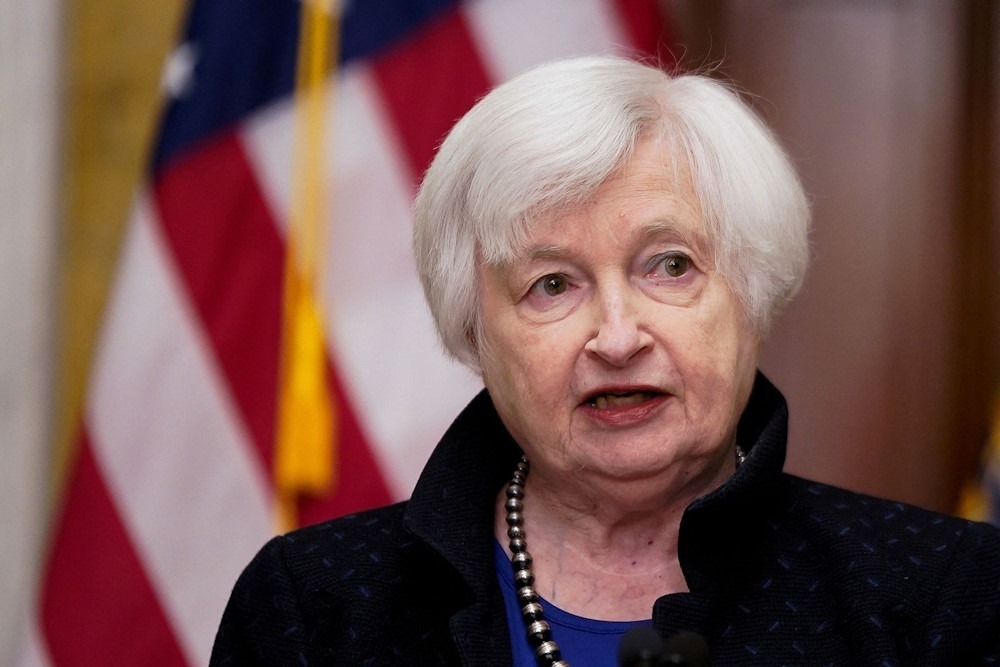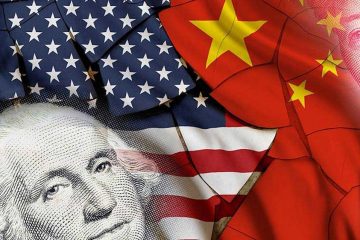Is Janet Yellen able to halt the second “shock” from China?

Janet Yellen was awestruck during her first visit to China. During her time as chief economist in the Clinton administration, she witnessed the flourishing of the economy as a result of market reforms inspired by the West. Yellen was anxious to foster tighter ties in the run-up to Clinton’s 1998 state visit to China, as the economy was pulling millions out of poverty.
Optimism has given way to concern as Yellen gets ready to visit China this week in her role as President Biden’s Treasury secretary. The United States is trying to foster a local clean-energy economy, but a flood of cheap Chinese clean-energy goods is lowering prices on international markets. At her talks in Beijing and Guangzhou, Yellen is anticipated to advise her Chinese counterparts to focus on growing their domestic consumer market rather than depending on exports to support their faltering economy.
She made the statement in an interview, stating that they desire market dominance and that we should not get too reliant on them. We will ensure that does not occur.
The Yellen warning suggests that the electric vehicle tariffs imposed by the Trump administration are going to be increased by the Biden government. Despite recent efforts to normalize relations, the world’s two biggest economies may find themselves at odds again if such a step is taken.
An end to an era in U.S. economic thought regarding China will be signaled by the message, which will also mark a development for Yellen. The 77-year-old Yellen concurred with other economists of her generation who had viewed the early 2000s boom in Chinese exports as a good thing, bringing cheap goods to customers all over the world. However, with the help of China’s cheap exports, the United States’ manufacturing base was eroded, leading to a political backlash against globalization and the loss of jobs for Americans.
My generation has always held the belief that a handwritten note is the proper response to the kind gift of inexpensive goods. According to her, that is the main point of conventional economics. “Send a thank-you note” is something I will never say again.
Yellen has stuck to her conventional views on the benefits of global trade, even as other officials in Biden’s administration are more in favor of protectionist policies. During Biden’s administration, she was a key voice in advocating for a reduction in tariffs on China. Since then, she has advocated for increased trade with allies that share her views in order to “friendshore” important industries instead of reshoring them totally.
Yellen pledged that the United States would take all necessary measures to safeguard important American sectors, but she would not say whether or not tariffs will be increased. This is obviously on President Biden’s agenda, and I agree with him that we must find a solution to the problem. She emphasized that the repeat of this incident must not be tolerated.
According to experts, a warning concerning overcapacity delivered by a member of the Biden administration who is perceived as more moderate would be more persuasive to Beijing.
According to Wendy Cutler, a vice president of the Asia Society Policy Institute, “I think it’s extremely important particularly coming from Secretary Yellen.” Cutler went on to say that China regards Treasury as the agency most amenable to cooperating with them. My guess is that she’ll try to convince us that we can and will take action, but that we’d rather collaborate with you to prevent this from happening, as otherwise our fragile detente will be in jeopardy.
According to those who have spoken with Chinese economic leaders, Yellen has been welcomed by them because she prioritizes continued commerce and investment between the two nations, despite the fact that they are now geopolitical rivals. Yellen has made history by visiting China twice; no other cabinet member has done so before her. This is in contrast to other officials; sources say that U.S. Trade Representative Katherine Tai has told staff that, due to the difficulty of securing trade agreements, she does not want to be a part of a parade of Americans in China.
According to sources familiar with the situation, Yellen’s passion in rocks dates back to her childhood, and last year in San Francisco, the Chinese vice premier, He Lifeng, presented her with a rare mineral that she now maintains in her office. Chinese officials interrogated Yellen on her economics study during dinner following a day of talks in California. In honor of their new partnership, the staffs of Yellen and He raised glasses to each other.
The trip will put that friendliness to the test in terms of whether it can influence Chinese policymaking. Trump, the Republican candidate for president of the United States, has warned about Chinese exports and called for much higher taxes, making trade with China an increasingly prominent issue in the race.
It was widely believed by some in the Biden administration that Yellen would not convince the Chinese to alter their broader economic strategy. While Washington has been trying to convince Beijing to change its economic focus to consumer-led growth for a while, Beijing has stuck with infrastructure and export-oriented industrial production.
According to Brad Setser, a former official in both the Treasury and trade departments, the Chinese may force the Treasury to take a more protectionist stance if they persist on their present course of action. He warned that Treasury’s displeasure with China’s macroeconomic policies could influence its stance on other policy measures, such as tariffs.
Last month, Chinese authorities challenged the Inflation Reduction Act by submitting a complaint with the World Trade Organization. It is anticipated that they will protest clean-energy subsidies in the US. They have voiced their disapproval of U.S. trade obstacles, a legislative effort to outlaw the social media platform TikTok, and American efforts to limit their access to cutting-edge semiconductor technology.
Yellen and other officials from the Biden administration see the talks as a valuable opportunity to coordinate on economic issues and reduce the likelihood of retaliation, regardless of whether the negotiations result in significant policy changes in the US or China.
According to a written statement by national security advisor Jake Sullivan, she has successfully built channels with China’s economic leadership, which enables us to better explain our severe concerns and the purpose of our policy initiatives. Responsible management of economic competition with China is our ultimate objective, and all of this contributes to that end.
Reports surfaced that hackers had breached the New York branch of the Industrial and Commercial Bank of China when Yellen and her colleagues were in San Francisco in the autumn. Treasury officials reportedly prevented misconceptions and helped contain the attack by swiftly discussing it with their Chinese counterparts. According to Yellen, such kind of speech doesn’t make her a peacemaker.
According to her, the typology is rather simplistic and she feels uneasy using it while discussing China.Our economic ties to China are substantial, in my opinion. My belief is that it will be advantageous for both of us, thus I would prefer not to see us give it up. Some of their actions, however, do raise legitimate worries on our part.

